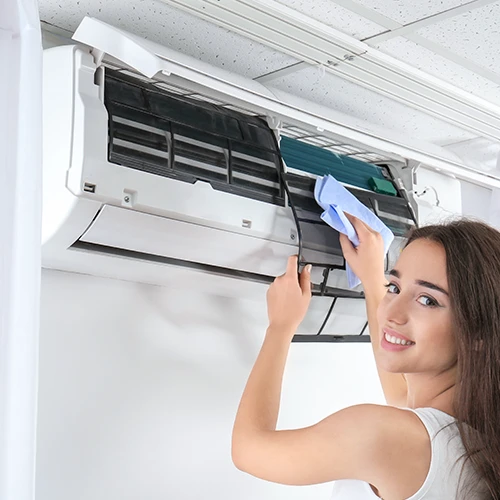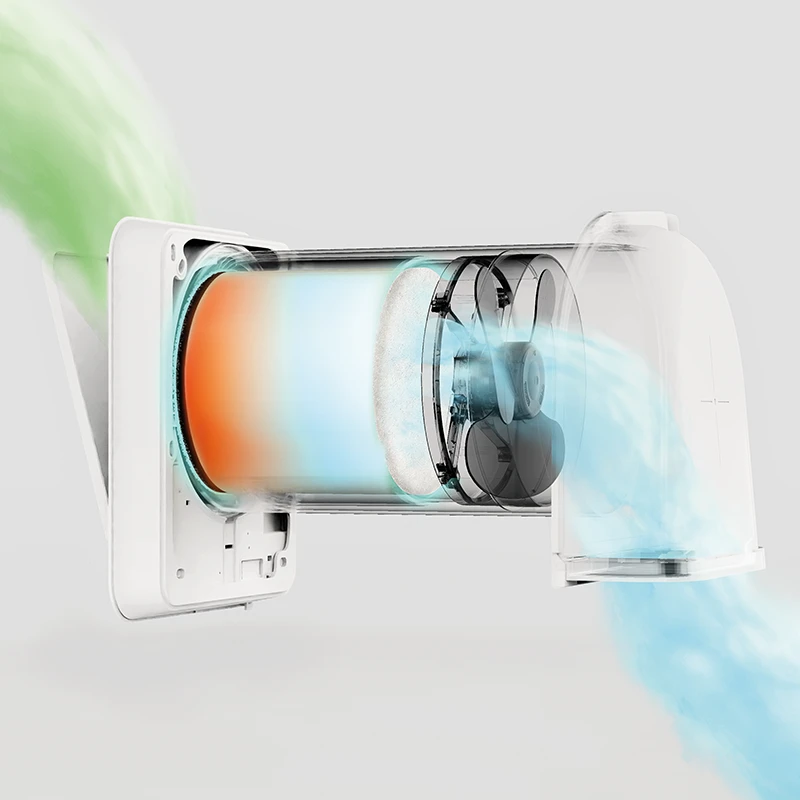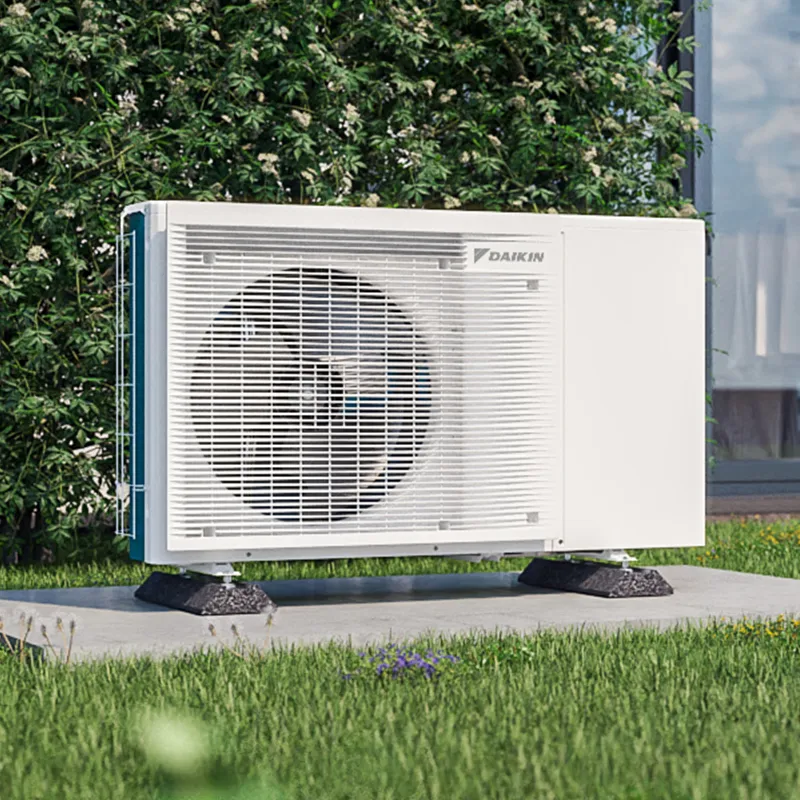Heat pump sound insulation
Heat pumps have become a popular choice for heating homes due to their energy efficiency and environmentally friendly operation. However, the noise they produce can be a challenge for homeowners and their neighbours.
Why is heat pump sound insulation important?
The sound insulation of a heat pump is essential to maintain a quiet and pleasant living environment. Without proper sound insulation, the noise from the heat pump can disturb your sleep, working from home or simply enjoying the peace of your home. Also, the noise from your neighbour's heat pump can become a source of conflict in the neighbourhood.
Effective sound insulation of the heat pump not only improves the quality of life of the occupants, but also contributes to better relations with neighbours. In addition, good heat pump sound insulation can increase the value of your property, as the quiet operation of a heating system is an increasingly appreciated feature by potential buyers.
Legislation and regulations on heat pump noise
When designing the sound insulation of heat pumps, it is important to take local regulations and legislation into account. In Slovenia, the Regulation on limit values for environmental noise indicators sets permissible noise levels. For residential areas, the limit value is usually 55 dB(A) during the day and 45 dB(A) at night.
Before installing a heat pump or taking soundproofing measures, check local regulations and, if necessary, obtain the relevant permits. Compliance with these regulations not only ensures compliance with the law, but also contributes to better relations with neighbours.
Heat pump technology is constantly evolving and manufacturers are paying more and more attention to noise reduction. For example, newer heat pumps use inverter technology, which reduces the intensity of the compressor, contributing to quieter operation. Future generations of heat pumps are likely to be even quieter, with advanced sound insulation techniques built in. Effective heat pump sound insulation is an investment in quality of life and good neighbourly relations.
Noise sources in heat pumps
Before we start to work on sound insulation solutions for heat pumps, it is important to understand where the noise is coming from. The main source of noise in heat pumps is usually the compressor, which is the heart of the unit. This key component produces a certain level of noise during operation, which can be disturbing if not properly insulated.
In addition to the compressor, the fan is an important source of noise. This creates the airflow necessary for the heat pump to operate, but can produce a characteristic "whoosh" sound. This sound can be particularly noticeable in quiet environments or at night. Newer models of heat pumps are equipped with advanced fans that operate at lower speeds, which reduce the whoosh sound. They also use materials that improve sound absorption, further reducing noise.
Vibrations generated by the heat pump during operation are also a significant source of noise. These vibrations can be transmitted to the building structure and cause additional noise to be transmitted throughout the building. This can be particularly problematic if the heat pump is not properly insulated from the building structure.
Finally, we should not forget the possibility of hydraulic shocks in the pipes of the system. These can cause sudden loud noises that are often more disturbing than the constant humming of other components. Hydraulic shocks are usually caused by incorrect design of the hydraulic system or valves. With proper hydraulic design and maintenance, these phenomena can be prevented.
Understanding these noise sources is key to developing effective sound insulation strategies for heat pumps. By addressing each of these sources appropriately, we can significantly reduce the overall noise level and improve the comfort of living.
Strategies for sound insulation of heat pumps
For effective sound insulation of heat pumps, there are several strategies you can use to reduce noise and improve living comfort. Correct heat pump installation is the first and perhaps most important step towards noise reduction. When choosing a location, avoid placing it near bedrooms or areas where you spend a lot of time. By choosing your location carefully, you can prevent many noise problems from the outset. In addition to the correct layout, it is a good idea to choose a heat pump with the lowest possible noise emissions when you buy it. Manufacturers often quote the noise level in decibels (dB), so it is advisable to choose a model that is quiet to begin with.
Another effective strategy is the use of sound barriers. Installing these barriers around the heat pump can significantly reduce the noise that is transmitted to the surroundings. It is important that the barriers are made of materials with high sound absorption, as this is the only way to effectively capture and reduce the noise produced by the heat pump.
Reducing the transmission of vibrations to the building structure is also key to effective sound insulation. This can be achieved by installing anti-vibration mats under the heat pump. The use of anti-vibration materials such as rubber or cork can further reduce the transmission of vibrations to the structure and contribute significantly to quieter operation. The heat pump base acts as a buffer between the appliance and the surface on which it is mounted, preventing the propagation of vibrations and consequently reducing noise.
Attention should also be paid to the pipes connecting the indoor and outdoor units of the heat pump. These pipes can be wrapped with acoustic insulation material, which helps to reduce the noise transmitted through the pipe system. This measure is particularly useful in cases where the pipes pass through living spaces.
Finally, we must not forget the importance of regular maintenance of the heat pump. Regular maintenance of the fans and cleaning of the cooling grilles can prevent the build-up of dirt that increases noise. Regular servicing can prevent the development of noise problems due to component wear. Regular inspections and maintenance can ensure that your heat pump operates optimally and with as little noise as possible throughout its lifetime.
The combination of these strategies can significantly improve the sound insulation of your heat pump and, consequently, the quality of life in your home. Each of these methods contributes to reducing the overall noise level and creating a quieter living environment.
How to cope with the noise from your neighbour's heat pump?
Noise from your neighbour's heat pump can be particularly challenging as you have no direct control over the source of the noise. However, there are a number of steps you can take to address this situation and improve your living environment.
The first and most important step is communication. Politely talk to your neighbour about the problem. Often people are not aware of how much noise their heat pump makes, especially if it is installed far from their living space. A frank and friendly discussion can lead to a quick and easy solution to the problem.
Once you have established a dialogue with your neighbour, you can propose solutions. Make them aware of the sound insulation options for heat pumps. They may be willing to invest in improvements once they understand how these changes can benefit not only you, but also them and other neighbours. Offer them information on the latest technologies and methods to reduce noise.
If the noise from your neighbour's heat pump is still penetrating your house despite your neighbour's efforts, you should consider improving the sound insulation of your property. This may include upgrading the insulation of your walls or installing soundproof windows. Although this requires some investment, it can significantly improve your quality of life and increase the value of your property.
If all of the above options do not produce the desired results, you can consider legal options. Check your local noise bylaws, as most communities have certain restrictions on noise levels, especially at night. However, it is important to see this as a last resort, as legal action can have a negative impact on your neighbourly relations.
Solving your neighbour's heat pump noise problems requires patience, understanding and a willingness to compromise. Using these approaches, you can find a solution that will improve the quality of life for all involved and maintain good neighbourly relations.




